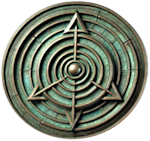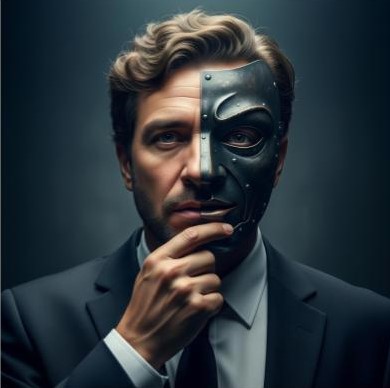Rethinking the Father Complex in the 21st Century
Returning from Battle
For most of human history, fathers were absent. They hunted, farmed, or fought wars while mothers kept the hearth. Today, for the first time, many fathers are more present at home than outside. Yet this return has created confusion: What is the role of the father now?
Modern men often resemble war veterans — back from the battlefield, but unsure how to rejoin the community. Society, too, struggles with the question: What does it mean to be a man, a father, in the 21st century?
To answer, we must first understand what it means to be a son. Before men can be fathers, they must learn how to be sons — connected to, yet differentiated from, their own fathers.
Archetypes of Fatherhood
Jung described the father as a central archetype shaping the psyche. He is not always the biological father; the “father complex” may be formed by teachers, priests, political leaders, or cultural icons. If the mother is the backstage, the father is the frontstage — the one who opens a view onto the world outside the self.
The Childish Father (Puer Aeternus)
Some fathers remain trapped in boyhood — the eternal child who avoids responsibility. Sons of such fathers may struggle to grow up themselves, stuck in fantasy or resentment. The Oedipal dilemma — leaving the comfort of the maternal embrace — requires a dynamic masculine presence to guide the way. Without it, individuation falters.
The Divine Father
Other fathers are placed on unreachable pedestals: godlike figures in temples, mafia bosses, or authoritarian leaders. Distant and untouchable, they inspire awe but not intimacy. Sons of divine fathers often live under impossible standards, measuring themselves against ideals they can never attain.
The Distant Father
Many fathers are physically present but emotionally absent — “weekend fathers,” invisible men who work endlessly or retreat into their own needs. These fathers leave sons without guidance, caught between longing for connection and feeling abandoned.
The Blamed Father
Society often needs someone to blame. The absent or failing father becomes the target — the one who “kicked us out of the eternal garden.” Yet this projection, what we might call the Telemachus complex, hides a deeper truth: sons must search for their own way, even in the father’s absence.
Family Dynamics: Penelope and Telemachus
We often celebrate Penelope as the faithful wife of Odysseus. But what about her role as mother? While Odysseus was away, Telemachus was raised under her influence. Modern parallels abound: many mothers say they were “both mother and father” to their children, even when fathers lived under the same roof. In practice, this dynamic can cut both ways. Warm, overprotective mothers may foster sons who remain “eternal boys.” Cold or aggressive mothers may push sons toward antisocial tendencies. Passive fathers, meanwhile, stand on the sidelines — failing to protect their children from either absence or intrusion.
Spiritual Fathers: Jesus and Joseph
Religion also shapes our father complex. In Christianity, Joseph represents the earthly, adoptive father — the man who stands beside but never overshadows the divine Father. For Jung, such images matter deeply: they imprint society’s expectations of fatherhood as both protector and guide, microcosm and mirror of the larger world.
Jung himself wrestled with his father complex. His own father was a priest who had lost his faith, leaving Jung to grapple with questions of authority, belief, and truth.
Reimagining Fatherhood Today
The father’s image is more than biography; it is archetype, myth, and cultural inheritance. Fathers influence not only the “road we drive on” (society’s structure) but also the way we see ourselves in the world.
In the 21st century, the challenge is to move beyond absence, passivity, or unreachable authority, and toward a model of fatherhood that is:
- Emotionally present rather than distant,
*Supportive of individuality rather than controlling, - Responsible and caring without collapsing into infantilization.
Understanding the archetypes of the father — childish, divine, distant, blamed — gives us tools to reflect on our own father complex. By doing so, we may learn not only what it means to be a father, but also what it means to be a son, a man, and a human being in today’s world.

